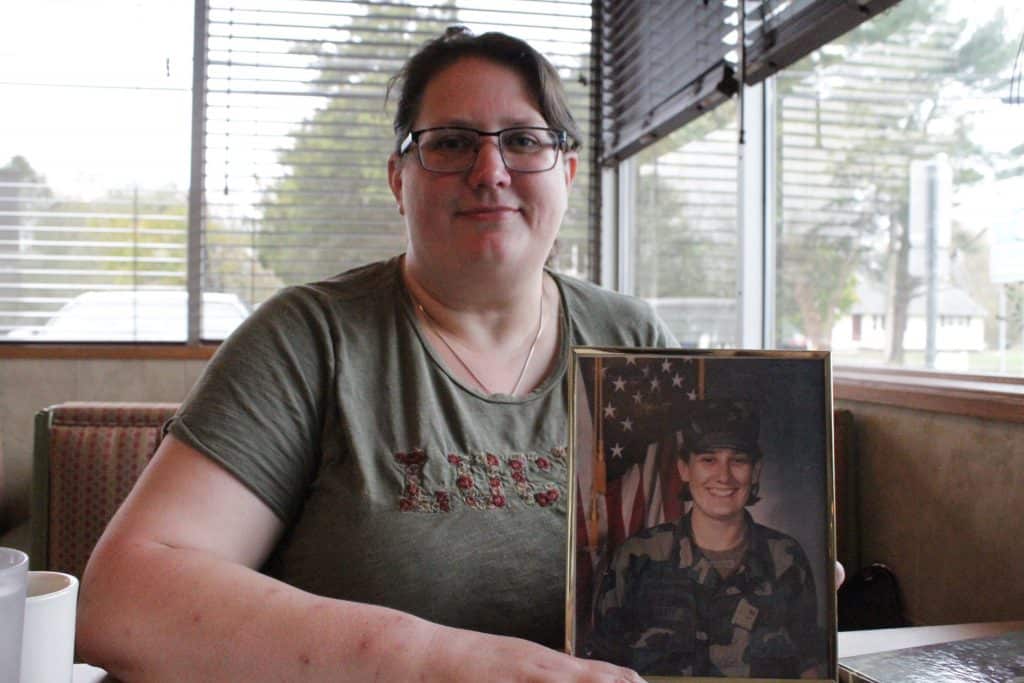

Beth Harvie found herself in the armed forces after longing for direction in her life, and the Shamong resident wouldn’t trade it for anything else.
After two years at George Washington University in Washington, D.C., Harvie went to a recruiter’s office on a whim and enlisted in the Army. She spent three years there, then joined the National Guard to become an E4 Specialist. She served the guard until 2003.
“I didn’t really give it any forethought and my family has a long history of service,” Harvie recalled. “And I thought I didn’t have much discipline growing up in a single-parent household, and said ‘I’ll go get some in the Army.’
“It was quick, but I did not like being told what to do.”
Like many recruits, Harvie had aspirations of world travel with the Army. But the service had other plans for her: She was sent to not-so-exotic Alabama for training, then stationed in Kansas.
In Kansas, Harvie worked in the disciplinary barracks for the Department of Defense as a military police officer, but in hindsight, should have “listened to her recruiter” to get a different position.
“I wanted to be of service and help people,” Harvie noted. “So, it spun out into being a prison guard. I ‘help’ certain people stay in prison. As it turned out, there were a lot of opportunities to make a difference and toward the end, I was a work release supervisor, which was kind of cool.”
Harvie said she’s had many jobs since her departure from the National Guard, including a stint at her stepfather’s car garage. She now works as a fixer, meaning she can enter a building or home, assess its issues and address problems.
In her spare time, Harvie said she and her husband, Michael, focus on a house they bought in town they believe was built in the 1860s. She wants to sift through township documents on the home to find out who built and owned it and to learn more about its past.
“I did meet a member of the historical society who said there used to be a peach orchard on the property,” Harvie said.
While her stint in the military occurred when international tensions were eased, Harvie doesn’t devalue her service or anyone else’s if it happened during peacetime.
“There’s a lot of waiting in the military, standby to standby,” she explained. “I do count myself as lucky as I see my brothers and sisters coming home, nowadays, even people who signed up for weekend warrior duty in the National Guard Reserve have a tough road ahead.
“It’s almost unbearable to think about it.”
While Veterans Day tends to be associated with males, Harvie believes it’s important to remember the females who serve. Harvie appreciates all veterans, but especially women.
“What they went through when they had gone through the service was much different than my experience,” she recalled. “I was on a mission trip in North Carolina a few weeks ago, and I met a woman who served in the early ’80s. And I know it was much different than then.”
Harvie noted that while it’s great to offer a veteran thanks, it is more important to demonstrate gratitude by supporting the VA and other military organizations, by voting, and by involvement in American Legions and VFWs.
As for the younger generation, Harvie believes everyone should sign up for selective service because it will help “harness energy” and reveal to recruits what they do or don’t like.









